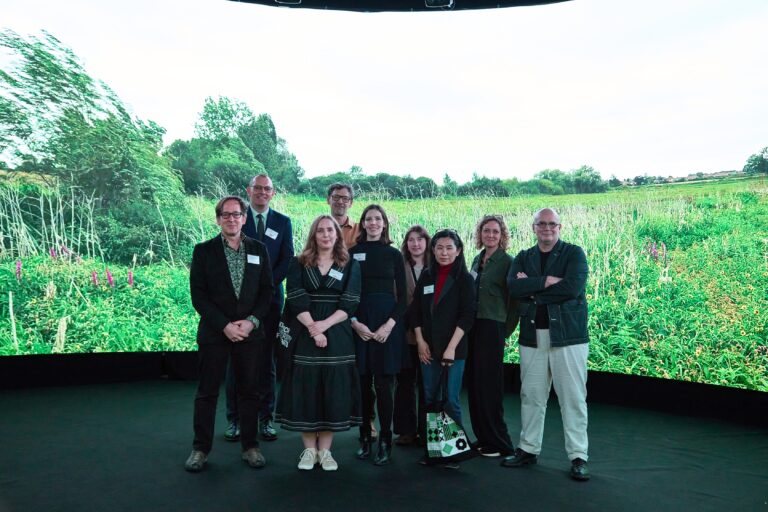Student Support Strategy
We will build a visible student support service that is integrated across the University and proactively engages with the student community to improve their health and wellbeing, from the moment they consider joining us and throughout their time here.
By doing so, we aim to:
- Build a strong community that fosters friendships and a sense of belonging.
- Increase students’ preparedness and awareness of resources for managing their health and wellbeing.
- Address accessibility issues early on.
- Provide tailored support for international students to help them integrate into the University and local community.
- Build students’ confidence and resilience, supporting their academic and personal growth.
This strategy aims to reduce acute welfare cases by improving overall mental health and wellbeing. Enhancing Student Support services will support the University’s ambition for growth and using our existing data, we will ensure that we can identify students at risk so we can proactively intervene to provide support. Our strategy and operational plan revolve around three main themes:
- Improving Wellbeing
- Intervention
- Integration
These themes align with other University strategies, such as the Creative Learning strategy, ensuring a cohesive approach to student support.
Defining the Journey
Student Support at Norwich University of the Arts has traditionally had a strong track record of providing support for students who sought help or were referred to the service. Our new strategy shifts to a proactive model, aiming to anticipate and mitigate issues before they arise. This anticipatory approach is crucial given the significant increase in students presenting with poor mental health and wellbeing — a 176% increase in student support appointments over five years. Our strategy is data-informed and aligns with the University’s growth plans, focusing on both domestic and international student needs.
- About us
- Norwich University Strategy
- Governance
- Our Chancellor
- Council and committees
- Vice-Chancellor and Senior Team
- University financial statements and regulations
- Policies and key information
- Equality, diversity, and inclusion
- Freedom of Information
- Collaborative partners
Theme One: Improving Wellbeing
Aim
We aim to maximize student engagement and wellbeing, preventing the causes of poor mental health by fostering a sense of belonging, providing a range of wellbeing interventions alongside traditional therapies, embedding wellbeing in the curriculum, and targeting support for different social groups.
Deliverables
- Belonging
- Social Prescribing
- Wellbeing in the Curriculum
- Study Skills
- Student Campaigns
- Accommodation
- Supporting Free Speech and Debate
- Removing Barriers to Engagement
Theme Two: Intervention
Aim
To identify students in need of support and intervene proactively, preventing issues from escalating, through the coordinated use of data available from a range of sources.
Deliverables
- Learning Analytics
- Case Management
- Integrated Systems
Theme Three: Integration
A Shared Responsibility
Aim
Adopt a whole-university approach to student support, ensuring all staff are aligned and equipped to contribute to the strategic mission. We believe that supporting students is everybody’s business!
Deliverables
- Staff Training
- Anticipatory Approach
- Accessibility
- Reasonable Adjustments
- Championing Diversity
- Effective Communication
Latest news
-
Norwich University of the Arts announces new international partnership with Gresham Global
International •
Gresham Global will act as the University’s official representative in India, widening access to world-class creative education.
-
Norwich University of the Arts recognises two new professors
Institution •
Dr Ellie Nixon and Dr Kirk Woolford have been recognised for their significant contributions to knowledge and high levels of academic achievement.
Read more about Norwich University of the Arts recognises two new professors
-
Norwich lecturer celebrates world premiere of new film Chicken Town
Alumni •
Richard Bracewell, Lecturer for BA (Hons) Film and Moving Image Production, worked with Norwich students and graduates to produce the Fens-based comedy.
Read more about Norwich lecturer celebrates world premiere of new film Chicken Town
-
Norwich University of the Arts moves up 25 places in The Complete University Guide
Alumni •
Norwich University of the Arts has been ranked among the UK's top two specialist creative arts universities — and the highest outside London — in the 2026 edition of The Complete University Guide
Read more about Norwich University of the Arts moves up 25 places in The Complete University Guide
-
East Gallery Fellowships 2025/26
East Gallery •
We are delighted to offer two opportunities to join the University as an East Gallery Fellow – Creative Practice, for twelve months from 1 November 2025 to 31 October 2026
-
Norwich University-led report says the East of England can be a hotspot for the UK games industry
Institution •
The UK games industry is now worth a staggering £7.82 billion, with East Anglia poised to become the next major growth cluster
-
Norwich University of the Arts at Norfolk and Norwich Festival
Research •
Norwich University of the Arts presents a series of live performances and immersive video installations as part of the Norfolk and Norwich Festival.
Read more about Norwich University of the Arts at Norfolk and Norwich Festival
-
Beyond the Frame 2025 winners announced
Winners announced in two age categories 11-15 and 16-19, and two theme categories ‘Responsible Production and Consumption’ and ‘Gender Equality’.
-
The big switch on: Norwich University of the Arts powers up with solar energy
Institution •
Norwich University of the Arts is making a bold and exciting move toward a more sustainable future.
Read more about The big switch on: Norwich University of the Arts powers up with solar energy
-
In conversation with Gabriella Mason, BA (Hons) Illustration
BA (Hons) Illustration •
Gabriella discusses how her creative practice and wider University experience has helped to manage and communicate topics around mental health.
Read more about In conversation with Gabriella Mason, BA (Hons) Illustration
-
Norwich University of the Arts Hosts AHRC in Celebrating Creative Technology Research
Research •
Norwich University of the Arts recently hosted a collaborative event showcasing projects funded by AHRC's Creative Research Capability fund, at its cutting-edge Immersive Visualisation and Simulation Lab (IVSL).
-
Shape Shift: Reflections on Art in Mental Health Settings
Research •
A groundbreaking new exhibition, Shape Shift: Reflections on Art in Mental Health Settings, created in partnership with Norwich University of the Arts, will open at The Fitzrovia Chapel on Thursday, 13 March 2025.
Read more about Shape Shift: Reflections on Art in Mental Health Settings
-
In conversation with Cassie Muskett, BA (Hons) Graphic Communication
BA (Hons) Graphic Communication •
Cassie Muskett has been selected for the Chaos Design Bursary Award. She secured a two-week paid internship, along with a generous £800 bursary. We spoke to Cassie about her internship experience.
Read more about In conversation with Cassie Muskett, BA (Hons) Graphic Communication
-
Retirement Announcement: Professor Simon Ofield-Kerr
Institution •
After dedicating his career to higher education in the creative arts, Professor Simon Ofield-Kerr, Vice Chancellor of Norwich University of the Arts, has announced his decision to retire in 12 months time.
Read more about Retirement Announcement: Professor Simon Ofield-Kerr
-
Norwich graduates’ work to premiere in new Channel 5 series Ice Age: Apocalypse
BA Animation and Visual Effects •
Staff and graduates’ work features in two-part special exploring the secrets of the Ice Age.
Read more about Norwich graduates’ work to premiere in new Channel 5 series Ice Age: Apocalypse
-
Embracing AI in Textile Design: A journey of creativity and collaboration
BA (Hons) Textile Design student, Megan Merhar, shares her journey of incorporating AI into her creative process.
Read more about Embracing AI in Textile Design: A journey of creativity and collaboration
Talk to us
The Student Support office is open all year round for appointments and to take telephone and email enquiries. We run a drop-in service, dates and times are available on our Intranet.
Get in touch via OurNorwichUni or:
Student Support 01603 977977
+44 (0) 1603 977977















